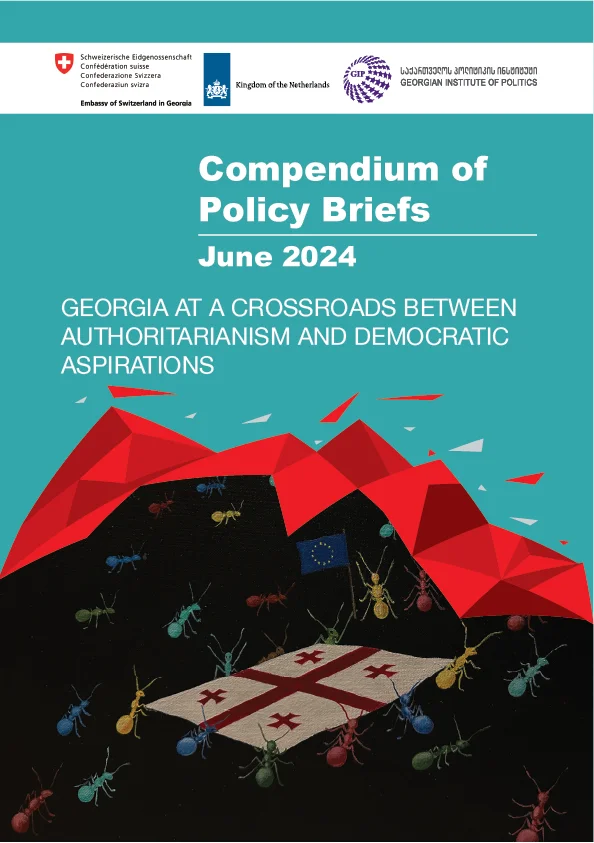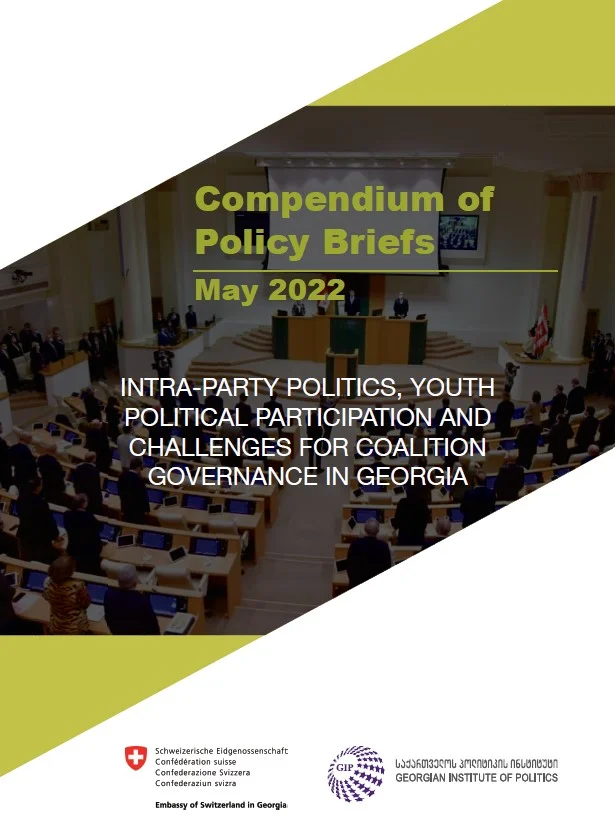Georgia faces a mutually reinforcing domestic and foreign policy crisis. At home, unprecedented autocratization is met with unprecedented democratic resistance. In foreign policy, an increasingly authoritarian Georgian Dream party remains politically isolated in the West while attempting to cultivate relationships beyond it.
Especially since the war in Ukraine, the Georgian Dream government has believed it could emulate other states and successfully pursue a multi-aligned foreign policy. However, this effort has fallen short. Domestic autocratization, coupled with growing economic and political ties with China and Russia, has fundamentally undermined Georgia’s relations with the West. As a result, Georgia is now misaligned with the West and increasingly aligned with the geopolitical trajectories of Moscow and Beijing.
Georgia’s case shows that not every state can pursue multi-alignment successfully – doing so requires having a strategic value that no great power can ignore. Small states with limited strategic weight cannot have their cake and eat it too – they must ultimately choose whom to align with.
With its domestic and foreign policy in flux, Georgia is now making that choice. The outcome of the country’s political crisis will likely determine whether Georgia’s traditional alignment with the West is replaced by deeper alignment with the China-Russia axis.
What is Multi-alignment and Who Can Afford It?
As power is the leading currency of international relations, the “system-ineffectual” small states often find themselves between a rock and a hard place. To survive, they either stay neutral, seek to join military alliances or hope to play all sides. A favorable international normative environment helped small states to avoid state death. However, as predatory powers like Russia are now increasingly challenging the rules-based international order, small states are even more vulnerable.
The multipolar distribution of power has given states more space to multi-align – that is, to be able to engage with all competing powers without making an explicit alignment choice with just one.
The so-called global swing states – such as Brazil, India, Indonesia, Turkey, Saudi Arabia, and South Africa – are prime examples of states that refuse to choose alignment with one particular great power and instead engage with all sides. Central Asian states and Azerbaijan have traditionally practiced multi-alignment successfully due to their hold on natural resources.
But not all states can succeed in multi-alignment. To play all geopolitical sides, states must be able to offer value that forces all competing actors to accept the multi-aligning state’s engagement with their rival power. Otherwise, the strategy of playing all sides is likely to fall apart and the state must ultimately decide which alignment better advances its long-term national interests.
Georgia: From Alignment to Multi-Alignment?
For decades, alignment with the West was Georgia’s preferred path. All Georgian governments committed to Georgia’s pro-Western foreign policy even after the 2008, when Russia invaded the country. Each government had successes of its own in bringing Georgia close to the US, EU, and NATO. Since 2012, Georgia’s government has sought to pursue a pragmatic policy toward Russia, which the West largely approved of despite its deteriorating ties with Russia. The 2010s also saw the rise of China and weakening of the US’s “unipolar moment”. Georgia’s ties with Beijing remained limited to the economic domain.
Amid the war in Ukraine, Georgian Dream sought to pursue a multi-aligned foreign policy – playing all geopolitical sides while maintaining regime stability. Three developments marked Georgia’s intended shift from alignment to multi-alignment.
First, the war in Ukraine left Georgia out of step with the West. As Washington and Brussels reversed their pre-war policy toward Russia – now providing military and political support to Ukraine while imposing economic sanctions on Russia – Georgia did not follow suit. Tbilisi refused to play any military role or impose bilateral economic sanctions on Russia. Yet, it kept voting in favor of the UN resolutions that supported Ukraine’s sovereignty and territorial integrity. At the same time, Georgian Dream enhanced economic engagement with Russia and sought to use the new geoeconomic realities to its advantage. Furthermore, Georgia’s ruling party deployed strong anti-Western rhetoric, blaming the West for attempting to drag Georgian into the war.
Second, the EU enlargement, underpinned by democratic conditionality, also affected Georgian Dream’s commitment to a pro-Western stance. As the EU accession for Georgia became a real process – rather than just an aspiration as it was before – the crisis with the EU deepened. Georgian Dream failed to implement necessary political reforms for EU accession, but Georgia was still granted candidate status at the end of 2023. Instead of starting anew with Brussels, Georgian Dream turned increasingly authoritarian at home – adopting a set of anti-democratic laws and hardening its anti-EU and anti-US stance. The EU and US responded by imposing sanctions and suspending high-level political ties. The disputed parliamentary elections in October 2024, Georgia’s decision to halt EU accession, and the repressive crackdown on peaceful protests led to further sanctions, including on the influential Bidzina Ivanishvili, and a freeze in Georgia’s strategic-political ties with the EU and the US.
Deepening ties with China also signaled Georgia’s bid at multi-alignment. Previously, ties with Beijing were limited to trade, but in July 2023, Georgia and China declared a strategic partnership, envisaging cooperation across economics, politics, and in international affairs. In 2024, in defiance of the US and EU, Georgian Dream awarded a bid to a Chinese-Singaporean company to build a strategic Anaklia Deep Sea Port. The boost in Georgian-Chinese ties contrasted with the suspension of Georgia’s strategic partnership with the US and the freezing of its EU accession process.
Failed Bid at Multi-alignment
Georgia’s attempts to pursue multi-alignment – having equally good relations with the West, Russia, and China – have fallen short. The core source of this is Georgia’s lack of strategic value to compel competing geopolitical powers to accept Tbilisi’s alignment with their rivals. The Georgian Dream leadership has incorrectly assumed that Georgia’s advantageous position as a transit hub between East and West would serve as a strategic asset, prompting the West to overlook its autocratization and growing ties with Russia and China.
Contrary to Georgian Dream’s expectations, the West imposed unprecedented sanctions in response to Georgia’s anti-democratic actions and its growing ties with Russia and China. The key pillars of Georgia’s traditional foreign policy priorities – EU accession, NATO membership and strategic partnership with the US – have collapsed. Since the October 2024 parliamentary elections, Georgia has not managed to restore ties with the EU or with the transactionally-minded Trump Administration, sending the country into an unprecedented international isolation. For the EU, Georgia’s autocratization and geopolitical alignment with Russia are the key red lines. For the Trump Administration, although not yet publicly articulated, Georgia’s growing ties with China are the likely source of contention. Under both Trump 1.0 and Biden, the US maintained its opposition to China’s presence in Georgia’s strategic ports. Under Trump 2.0, the issue is likely to stand in the way of normalizing US-Georgian ties. The anti-Georgian Dream mood in both chambers of the US Congress is also likely to affect Georgian Dream’s desired bargain to restore business as usual with the US.
By contrast, Georgia’s alignment with Russia and China is growing. Although the history of Russia’s war against Georgia and the occupation of its territories makes an overt thaw in relations politically costly for the ruling party, economic ties, shared authoritarianism and a common anti-Western stance among ruling elites in Moscow and Tbilisi keep Georgia informally aligned with Russia. Alignment with Beijing is more justifiable given the absence of past enmity and especially given China’s growing geopolitical and geoeconomic weight. Here too, the ruling elites of both countries share a commitment to authoritarianism and anti-Westernism. However, Georgian-Chinese relations are hardly the relations of equals. Beijing has already gained a stake in building Georgia’s strategic port and expands ties with Tbilisi across many sectors, leading to Georgia’s gradual dependence on China.
The Ultimate Choice of One
With the West currently out of the equation, Georgia’s foreign policy alignment is now being redefined, although the transition is not yet complete. As a strategically less significant state, Georgia cannot have its cake and eat it. It must ultimately choose between the West or the Rest. The geopolitical direction Georgia is going to take, however, depends on how the country’s protracted domestic political crisis resolves.
Under Georgian Dream, alignment and ideological convergence with Russia and China is likely to increase, while the ties with the West could suffer. Georgian Dream’s accommodating policy toward Russia is likely to remain unchanged whether the war in Ukraine ends or continues. The Georgian Dream is also likely to keep expanding ties with China, given Beijing’s global role and shared authoritarianism. Georgia’s relations with the EU are likely to remain frozen because of the country’s autocratization, while ties with the US could also worsen due to Tbilisi’s growing ties with China.
Georgia’s pro-Western alignment could be restored if its domestic political crisis ends with the opposition victory. Georgia’s mainstream opposition parties maintain a strong commitment to democracy and Western integration, and have a strong anti-Russia outlook. They are likely to seek mending ties with the US and EU, restoring the EU accession process, while relations with Russia are likely to worsen. Economic ties with China are likely to continue, while strategic-political relations could be downgraded.
Conclusion
Georgian Dream’s autocratization and growing ties with Russia and China have undermined Georgia’s long-held pro-Western foreign policy orientation. Its attempt to pursue multi-alignment has failed due to Georgia’s limited strategic value. This leaves the country’s foreign policy alignment in a transitional phase. If Georgian Dream manages to consolidate autocracy, Georgia is likely to align with the China-Russia axis. If democracy is restored and the opposition wins, Georgia is likely to revert to its default pro-Western alignment.
The former scenario would end decades of Georgia’s efforts toward democracy consolidation and its strong partnership with the West, sending Georgia into Russia’s sphere of influence and down the rabbit hole of state failure. The latter would give Georgia another opportunity to carry on its democratization process, advance on the EU accession path and restore strategic ties with the United States.

Irakli Sirbiladze
Irakli Sirbiladze is a foreign policy analyst and visiting lecturer at Tbilisi State University. He previously served as a 2023 ReThink.CEE Fellow at the German Marshall Fund of the United States, a 2021 Think Visegrad Fellow at the Centre for Euro-Atlantic Integration and Democracy, and a Policy Analyst at the Georgian Institute of Politics. He also held the position of Chief Editor at the Diplomatic Institute of the Ministry of Foreign Affairs of Georgia and has collaborated with international organizations such as the OSCE/ODIHR and the Council of Europe on election observation and citizen engagement. He holds an MA in International Relations from Queen Mary University of London. His research interests include international relations theory, Georgian foreign policy and democratization, EU foreign policy, and developments in Eurasia.







